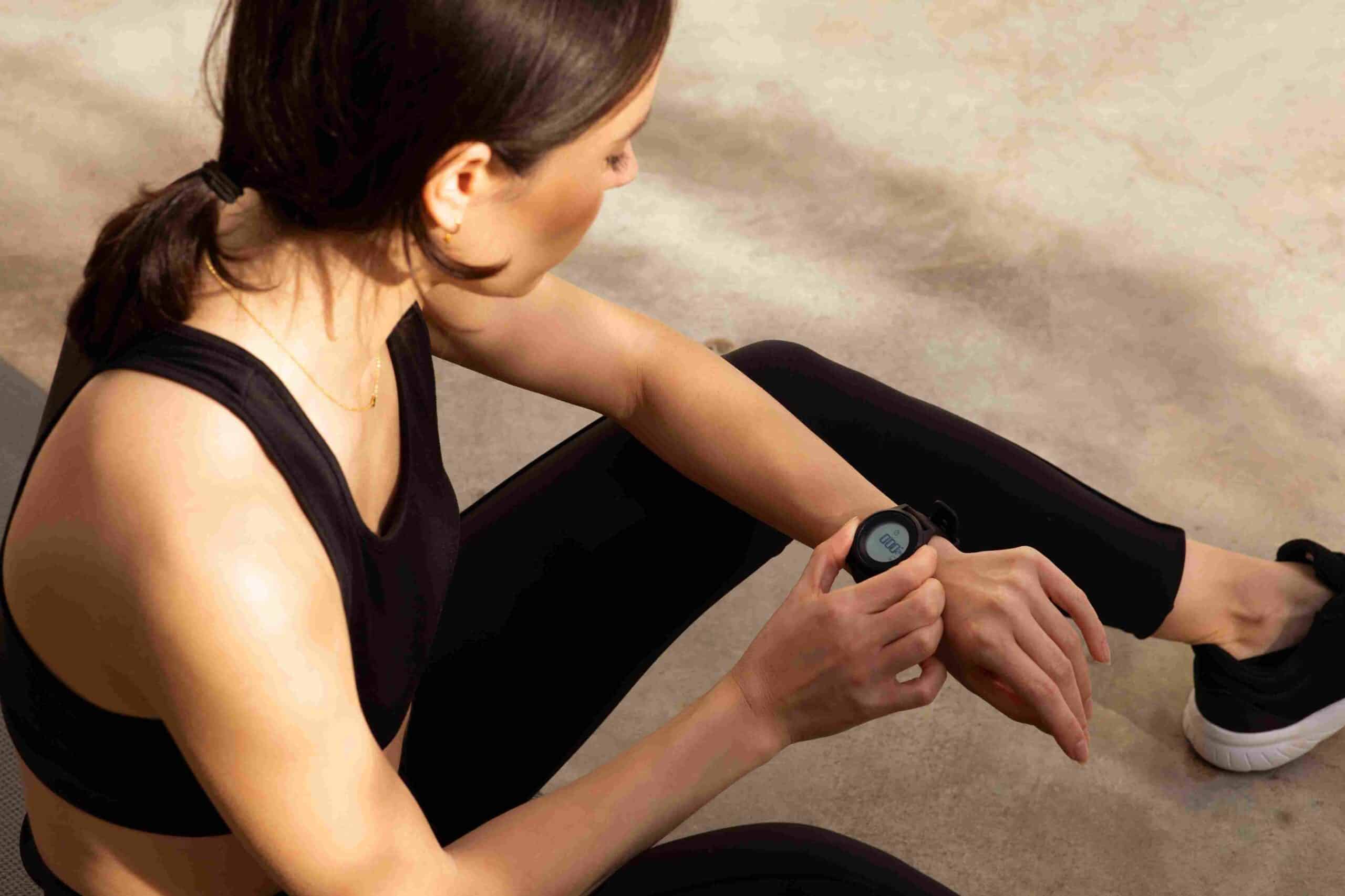It’s hard to believe that a device on your wrist could influence the outcome of a Virginia injury case but it’s true. Today’s fitness trackers do far more than count steps. These compact devices record movement, heart rate, sleep quality, and even stress levels—data that may provide valuable evidence in a personal injury claim.
At The Johnson Injury Firm, our Richmond personal injury lawyers have seen how wearable tech can support a case when the correct legal strategy is in place. If you were hurt and seek compensation, your fitness tracker may do more than help you recover—it could help you win.
What Kind of Data Do Fitness Trackers Collect?
Devices like the Apple Watch, Fitbit, and Garmin produce a surprisingly detailed snapshot of your physical health and activity. They collect:
- Daily step counts
- Calories burned
- Heart rate (resting and during activity)
- Sleep stages and duration
- Active minutes or time spent exercising
- GPS tracking and movement logs
- Blood oxygen levels (in newer models)
When viewed over time, this data forms a baseline of your health and behavior. When you experience a sudden drop in activity, an increase in resting heart rate, or disrupted sleep after a traumatic event, this shift can serve as compelling proof that you suffered a serious injury.
Real-Life Examples: How Wearables Have Been Used in Injury Claims
In a 2014 case that drew international attention, a personal trainer in Canada used her Fitbit data to demonstrate the decline in her physical activity after a car crash. Her attorney used the data to compare her post-injury movement levels with national averages, providing a measurable loss of function. While that case didn’t occur in Virginia, it set a precedent that wearable tech data could be used to support injury claims.
In the U.S., courts have begun to consider fitness tracker data in broader personal injury cases, especially where medical evidence or testimony alone might not paint the full picture. While not yet standard, this legal trend is growing, and we expect it to play a more central role in the years to come.
Is Fitness Tracker Data Admissible in Virginia Courts?
Yes—under certain conditions. In Virginia, fitness tracker data may be admitted as evidence in a personal injury case, provided it meets the standards under the Virginia Rules of Evidence, specifically Rule 901, which governs the authentication of digital records.
To introduce fitness tracker data, your Richmond injury lawyer must:
- Authenticate the data, proving it is what it purports to be
- Show that the device was functioning properly during the relevant period
- Demonstrate that the data was not altered or tampered with
- Establish relevance to the facts of the case
Virginia’s courts are increasingly familiar with digital data in cases ranging from text messages to surveillance footage, and fitness data is quickly becoming part of that conversation.
How Wearable Data Strengthens Your Injury Claim
A personal injury attorney in Richmond can use your fitness tracker data in several impactful ways:
1. Demonstrating Reduced Physical Activity
If you were injured in a car accident, your tracker might show a steep decline in daily step count, active minutes, or exercise routines. This decline provides quantifiable proof of reduced mobility or pain-related limitations, helping combat claims that your injuries are minor.
2. Establishing Pre-Injury vs. Post-Injury Baseline
Your wearable provides more than post-injury data. If you used the tracker before your accident, we can establish a “before and after” view of your health. For instance, if you went from averaging 12,000 steps a day to barely 1,500, that drastic change can powerfully support your claim.
3. Corroborating Pain and Sleep Disruption
Many people suffer from chronic pain after an accident, which can affect their ability to sleep. Devices that monitor sleep stages and restlessness can demonstrate how your injury is impacting your nightly rest, reinforcing claims of suffering and emotional distress.
4. Refuting Allegations of Exaggeration or Fraud
Insurance companies and defense attorneys often try to downplay injuries or argue that victims exaggerate. Objective fitness tracker data—especially with medical records and doctor statements—can shut down these arguments with real-time, impartial evidence.
5. Supporting Long-Term Damages or Disability Claims
If you’re seeking damages for permanent disability, chronic pain, or long-term loss of function, ongoing wearable data can help show that the effects of your injury persist well beyond the initial incident.
Virginia’s Contributory Negligence Rule Makes Strong Evidence Crucial
Virginia remains one of the few states that adheres to the harsh contributory negligence doctrine. Under this rule, if you are found even 1% at fault for your injuries, you may be completely barred from receiving compensation. That’s why compelling, irrefutable evidence is so important.
Having a PI lawyer in Richmond who understands how to introduce and use fitness tracker data can mean the difference between winning and losing your case. Your lawyer can gather medical records, expert opinions, and digital health data to create a cohesive and convincing narrative.
Data Privacy: What You Need to Know Before Submitting Your Fitness Records
We understand that your health data is private. When you share your fitness tracker data with our legal team, we take every step to protect your privacy and use the information responsibly. However, once data is introduced in court, it may become part of the public record.
Before using wearable data in a case, we’ll review the pros and cons, ensure that it supports your claim, and confirm that we can securely verify its origin and authenticity. Our injury law firm in Richmond, VA, always keeps your best interests and privacy at the forefront.
Can the Defense Use Your Wearable Data Against You?
Yes. If the defense obtains access to your wearable data through discovery or with your consent, they may try to use it to argue that you were more active than claimed. That’s why it’s essential to work with a legal team that knows how to control the narrative.
We help clients present their fitness data in a way that accurately reflects the context. For example, just because you walked one afternoon doesn’t mean you aren’t in pain—it may have been part of a physical therapy routine. We make sure the whole story is told.
What If You Didn’t Use a Tracker Before Your Injury?
Even if you only started using a fitness tracker after your injury, that data can still be useful. It can show your efforts to recover, highlight challenges in mobility, and demonstrate persistence despite setbacks. Plus, combined with medical evaluations, this data paints a picture of your post-accident reality.
You might want to start if you’re considering filing a personal injury claim and aren’t currently using a tracker. We can help you document your recovery process using wearable data moving forward.
Types of Cases Where Fitness Trackers Can Help
Fitness tracker data may be helpful in a variety of personal injury cases, including:
- Car and truck accidents
- Slip and fall injuries
- Bicycle or pedestrian accidents
- Workplace injuries
- Premises liability claims
- Product liability injuries
- Chronic pain and PTSD cases
No matter how you were hurt, a Richmond injury lawyer from our team can assess whether wearable data could support your case.
How Our Firm Uses Fitness Tracker Data to Help Clients
As an experienced injury law firm in Richmond, VA, we’ve seen how wearable technology can shift the balance in personal injury cases. When needed, we consult with forensic technology experts to authenticate and interpret fitness tracker data. We use your data as one piece of a larger strategy, integrating it with traditional evidence like medical records, witness statements, and financial documents.
We never rely on tech alone, but when it fits the case, we make sure it counts.
Frequently Asked Questions (FAQ)
Can I use fitness tracker data even if I didn’t have the device before my injury?
Yes. Even if you began using a fitness tracker after your accident, the data can still be helpful. It can show how your activity levels are limited during recovery, document sleep disturbances, or highlight fluctuations in heart rate related to pain or stress. A Richmond injury lawyer can help determine how to effectively incorporate this data into your case.
What if my device didn’t record data on the day of the accident?
That’s okay. While data from the day of the incident can be helpful, most personal injury cases focus on the period before and after the event. Your fitness tracker can help demonstrate changes in activity, sleep, and overall health following your injury, which may be just as important in proving damages.
Can insurance companies request my wearable data?
In some cases, yes. During the discovery phase of a lawsuit, the defense may request access to your wearable data. This is one reason why working with a personal injury attorney in Richmond who can manage the process and protect your rights is critical.
Is fitness tracker data enough to win a case on its own?
Fitness tracker data is rarely the sole evidence to win a personal injury claim. However, when combined with medical records, expert opinions, and witness testimony, it can significantly strengthen your case by adding an objective, time-stamped layer of proof.
Should I talk to an attorney before sharing wearable data with anyone?
Absolutely. Sharing data without legal guidance could lead to misinterpretation. Always consult an injury law firm in Richmond, VA, before handing over any digital health information.
Small Device, Big Impact: How It Helps Your Virginia Injury Case
You may not think twice about the data your fitness tracker collects, but that information could become a powerful ally in a legal setting. Whether it’s showing how your life changed after an accident or proving that you’re not exaggerating your pain, this data offers insights that written statements or memory alone might miss.
Contact a PI lawyer in Richmond today if you’re recovering from an injury and want to build the strongest possible case. At The Johnson Injury Firm, we know how to leverage the full power of evidence—digital or otherwise—to fight for the compensation you deserve.





